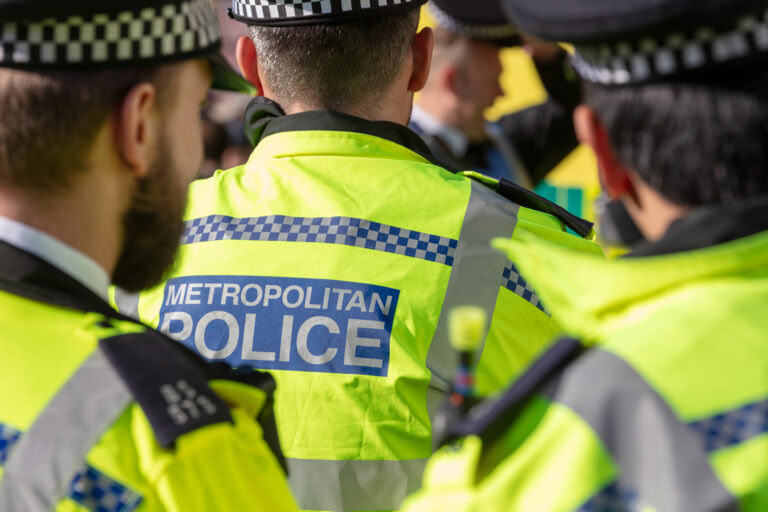Naming defendants in rape cases is crucial to victims coming forward
Earlier this month, criminal defence lawyer Nick Freeman wrote a piece for The Times, arguing that defendants in rape trials should be granted anonymity.
It is almost a given that whenever a person (normally famous, such as in the recent case of Oritse Williams from JLS) is found not guilty of rape or sexual assault at trial, someone like Mr Freeman will call for anonymity to protect defendants from “shredded reputations” and “destroyed careers”. It is an easy, predictable argument that is based on the idea that false accusations about rape and sexual assault are rife and that victims and survivors that report their abusers are being dishonest.
There is no evidence at all that false reports of rape and sexual assault are more common than those of any other violent crime. It is important to remember that rape cases can fail for any number of reasons: the victim may withdraw their complaint because it was too difficult for them to go through with it or the police may not have sufficient evidence to take the complaint further. Just because the suspect was not convicted, does not mean that the complainant was not telling the truth.
And it is interesting how we do not hear Mr Freeman calling for defendants of other serious crimes to be afforded anonymity. I would suggest that being accused of murder, domestic violence or paedophilia equally and rightly attract a similar stigma; so why are these crimes any different and why should we treat the defendants differently?
“But the victims have the right to anonymity! It’s not fair!”. This argument suggests that a person accused of rape is a victim too, just like the person who has been raped. This again perpetuates the myth that false allegations are rife, which is simply untrue. Victims’ identities need to be protected in order to give them the confidence to come forward. Police reports for rape are extremely rare; it is thought that only one in six rapes and sexual assaults are actually reported to the police and that is before we take a look at the low rate of cases that are taken any further. Reporting needs to be encouraged and victims are often too fearful of the social repercussions they may face to speak to the police. Rape survivors who report this crime fear disbelief, judgement, vilification and rejection from their community and so by protecting their identity, we embolden them to speak up.
Naming the suspect in these cases also assists police investigations as it encourages both witnesses and other victims to come forward. Many rapists are serial offenders and when survivors see their rapist’s name in the paper in association with crimes committed against others, they are more likely to report their own abuse. The public have seen this play out in relation to serial rapists and abusers such as Jimmy Savile and John Warboys. In the experience of Bolt Burdon Kemp’s Abuse team, we have seen the same happen when paedophiles who are members of the Church, Scout leaders and football coaches are named as suspects. The evidence clearly shows there is strength in numbers and this is particularly helpful in securing a guilty verdict.
It is often forgotten that we trialled anonymity for those accused of rape in England and Wales for well over a decade and it did not work. The Sexual Offenders (Amendment) Act 1976 introduced the concept of affording anonymity to the defendant in sexual offence cases, specifically to protect them from damage to their reputation and to provide equality between complainants and defendants in rape cases. This was repealed in 1988 following advice from the police and a Criminal Law Revision Committee report. It was considered that comparing defendants with complainants was invalid and that the correct comparison is in fact between co-defendants. To be accused of rape is no different to being accused of any other serious crime and therefore did not warrant special treatment. To name a defendant in any criminal proceeding assists the police investigation and is in line with the principle that justice should be practised openly and publicly.
Defendant anonymity was considered once more by the Labour Government during the passage of the Sexual Offences Act 2003 and yet again by the Coalition Government in 2010. It was defeated both times, with the Ministry of Justice’s November 2010 paper concluding that the review of evidence “found insufficient reliable empirical findings” to justify a change in the law.
The argument for defendant anonymity only serves to protect defendants in the highly unlikely circumstances that an allegation against them is false. It is an irresponsible and tired argument that perpetuates dangerous myths about the reporting of rape. It is unsupported by the police and unsupported by legal experts who have considered the evidence at length and in detail. Let us now put this argument to bed and focus our efforts instead on doing everything we can to encourage victims to come forward, safe in the knowledge that they will believed. That is how we achieve justice. That is how we protect our communities.
Emma Ferguson is a solicitor in the Abuse team at Bolt Burdon Kemp. If you feel you may have a claim or are enquiring on behalf of a loved one contact Emma free of charge and in confidence on 020 3973 5008 or at emmaferguson@boltburdonkemp.co.uk. Alternatively, complete this form and one of the solicitors in the Abuse team will contact you. Find out more about the Abuse team.










